Music | Bittles’ Magazine: The music column from the end of the world
The name Masha Qrella may be new to some, but trust me when I tell you that this is your loss. Over a busy and inspired career the artist has consistently created a wealth of great music, while appearing to always stay true to who she is. By JOHN BITTLES
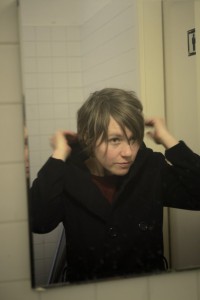 After starting out playing in instrumental bands Mina and Contriva she made the leap to a solo career in 2004 with her debut LP Luck. Accepting a role as a vocalist for the first time Luck heralded a vocalist of unique talent, whose songs were sung like she meant each and every word. Since then she has recorded numerous albums of confessional soul-searching, ambient textures, electronic glitches and intelligent pop. Never afraid of experimenting, or attempting something new, Masha’s music is the perfect antidote to the generic pap which for too long has clogged up the charts.
After starting out playing in instrumental bands Mina and Contriva she made the leap to a solo career in 2004 with her debut LP Luck. Accepting a role as a vocalist for the first time Luck heralded a vocalist of unique talent, whose songs were sung like she meant each and every word. Since then she has recorded numerous albums of confessional soul-searching, ambient textures, electronic glitches and intelligent pop. Never afraid of experimenting, or attempting something new, Masha’s music is the perfect antidote to the generic pap which for too long has clogged up the charts.
Keys, the brand new album by the Berlin-based singer is a record which may just be her best yet. It creeps up on the listener, seducing you slowly but surely until it has won full possession of your heart. Intimate sounding vocals combines brilliantly with electronic trickery and organic musicianship to create an album which seems so vivid it almost seems to live and breath. From the subdued melancholy of opener Ticket To My Heart, to the stirring string-laden closer Why, Keys merges feelings of regret, wistfulness and a series of insightful and, at times, funny one liners to stunning effect. In fact, it is the album’s thoughtful lyrics and self-depreciating humour which give it a very human heart, and lift the entire record from the great to the sublime.
In the following interview Masha Qrella discusses the new album, growing up in East Berlin, playing live, her time in Mina and Contriva, skyscraper catch and lots more. And, if you seek a soundtrack to your reading experience, then Keys is the place to be.
By way of introduction, can you tell us a bit about who you are and how you first got into music?
I grew up in East Berlin, in the towering apartment blocks of Lichtenberg and Marzahn. My favourite game was ‘skyscraper catch’. It was a game that consisted of the ‘coordinates’ lift 1, lift 2, staircase and 18 floors. It was to calculate the probability of whether somebody would next take the elevator or the stairwell and whether they would go up or down. In that respect I developed a certain perfection. Later I was to take part in competitive athletics. Thanks to the intervention of my parents not swimming, but „only“ fencing – one of the few sports GDR athletes had absolutely no chance in and thus remained spared from doping and drill. After the fall of the wall in Berlin I developed a back problem and felt glad having to say goodbye to sport.
Until that point music had not played a role in my life. My parents, my father being a Russian astrophysicist and my mother a sleep researcher, both spent their student days in Moscow in the 70s and heard almost exclusively Vladimir Vysotsky at home.
My brother had a modest record collection with British pop music, almost exclusively queer (Queen, Eurythmics, Pet Shop Boys, Bronski Beat). I was 16 when I first had a guitar in my hand, so I could play Russian songs around the campfire.
After school in the late 1990s, I began to play bass and keyboards in the instrumental bands Contriva and Mina and to mount soundcards into PC’s and record music myself. It was with a similar absoluteness and commitment that I used to apply to competitive sports that I was now applying to music, only that music was indeed something in which I had the feeling that I have finally arrived. And I was in a place where this was possible. We had a rehearsal room and an apartment, which cost almost nothing, instruments from flea markets and a lot of time.
That’s my musical education, Berlin at the millennium. I am self-taught. Today I write primarily songs, but also soundtracks and scores for film and theatre.
If you had to pick one song to sell the album, which would it be and why?
I decided after some umming and arring for DJ as the first radio single. I was not so sure if that was the right decision to me. But as luck would have it, I met Dirk von Lowtzow from Tocotronic on the day I got my promo CDs. I was just on the way to a friend, who just had a child, with flowers and champagne in my hand. The promo CD, which was actually intended for the friend, I gave to Dirk. An hour later, he wrote saying he would dance to DJ in the living room. So my decision was sealed. The playlists of radio stations in Germany show that this was at least not a wrong decision. When we recently played concerts in Poland, I thought, that Girl or Pale Days would also be good singles. As different as the three pieces are, they have an intrinsically passionate melancholy in common.
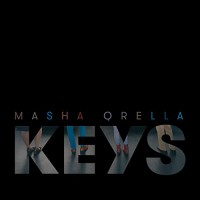 When you first started work on Keys, did you have a specific idea of how it would sound?
When you first started work on Keys, did you have a specific idea of how it would sound?
I had no special sound concept for the songs. But I knew that I had great songs and wanted to get away again from conventional song-writing. I wanted to pick up where I was with Unsolved Remained, my second album. This album was influenced by collaborations with artists such as Rechenzentrum and heavily influenced by electronically generated music. I wanted to create a foundation with Bass and Beat that carries the songs, without guitars and using synth sounds which I desired and had omitted for a while.
In the recordings, I was looking for the emotion that has led me to write the songs. When I was quite far progressed I thought out of habit that I now have to get the album mixed, but it occurred to me that I didn’t want it so different from what it already was
I tried to mix two songs with different people, but that totally irritated me. The simple fact of too much compression or strange reverb made me freak out.
In the end I decided to produce the album alone. I called Bo Kondren of Calyx Mastering and asked if I could come to him with my mixes so that we could work through it together to solve any problems before the final Mastering. I was afraid of the moment, but when I sat with Bo in the studio, I was just proud of the album, the way it sounded and of the songs.
We actually exchanged only a few internal cheap EQs from Logic to higher quality ones, attempting to fully maintain the original sound only to refine a little. This was a great complementary addition from Bo, which has totally respected the mixes and the expression of the songs.
The record opens with the deeply introspective pop licks of Ticket To My Heart. What made you decide to have this as the opening track?
Ticket To My Heart is an example for much of what was important to me and this album. In addition to the private significance that this song has for me it’s also a love letter to the English / German performance group Gob Squad. I came across Gob Squad because a fellow musician (Christopher Uhe) recommended me one of their productions
Suddenly I found myself being on stage not only as a musician but also as a performer. It did not make any difference to them that I considered myself only a musician. That was a totally amazing moment. I did not see something like this before, being so open with personal stories not only from the performer but also from the audience. The openness and self-irony, dealing with issues like sexuality, group dynamics, lifestyles and failures has totally impressed me.
In the video for Ticket To My Heart you can see 4 members of Gob Squad dancing. It is a quote from a dancing scene from the movie Water Drops On Burning Rocks by Françoise Ozon. When you see the film, suddenly all role models and clichés regarding gender issues are obsolete.
One of my favourite songs on the record is the wistful strings and (seemingly) regret-filled lyrics of DJ. Can you tell us a bit about how this song came about?
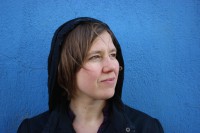 DJ is actually the only song that was created during the production. It’s kind of a by-product. It is originally a version of Simple Song with different harmonies. I had rejected this version again because they did not correspond to the song. But the harmonies and the strings were in my head. Eventually I noticed these lines of text again. They were actually older in origin, sometime from the period between Unsolved Remained and an unreleased album. I recognized in the lines that described my own misery back then my friend Hannes (who is by the way also the DJ in the video for the piece). Somehow DJ tells about both of us, about a state one can find oneself in Berlin.
DJ is actually the only song that was created during the production. It’s kind of a by-product. It is originally a version of Simple Song with different harmonies. I had rejected this version again because they did not correspond to the song. But the harmonies and the strings were in my head. Eventually I noticed these lines of text again. They were actually older in origin, sometime from the period between Unsolved Remained and an unreleased album. I recognized in the lines that described my own misery back then my friend Hannes (who is by the way also the DJ in the video for the piece). Somehow DJ tells about both of us, about a state one can find oneself in Berlin.
Songs such as Keys,Rescue Pills and Why sound like they come straight from the heart. Is it difficult to imagine people listening to your personal thoughts?
Keys and Rescue Pills have also a very humorous side, and humour protects. Why is a very special piece, actually the only one on the album that is so painfully direct that it even took a lot of effort to actually play it to a close friend. Also live it is a difficult moment that I need to immediately contrast by playing a totally different song to be able to bear it.
But I know that myself I often especially like the songs by artists that come so „straight from the heart“ that you can hardly bear it.
Do you have any plans to tour the album at all? If so – what can we expect?
I recently played the record release show in Berlin and a few concerts in Germany. The last concerts we played were in Poland. This was a different and very cool experience. I’m very much looking forward to the next concerts in Eastern Europe in June. In summer I will play a couple of festivals. In autumn there are plans to play further concerts in Europe, Japan and South America.
You first started by working with bands like Mina and Contriva. What made you decide to go solo with your first album Luck?
Mina and Contriva were instrumental bands. I started to write lyrics and found a way to record songs myself, which was not the way we worked with the bands so far. Recording myself made me go away from a band dependent concept. I was more and more influenced by sampling and electronically generated music.
I still listen to Tell Me When and If You Had Stayed, which you released with the band Contriva. For me they have an emotional core which was missing from a lot of music at the time. How do you feel when you listen back to them now?
I get emotional and nostalgic. I loved those bands and we are still very close friends.
I’m super happy that Hannes Lehmann (then also a band member of Mina and Contriva) is with me at my concerts again. With him and Robert Kretzschmar, who has drummed his heart and soul out for this album, I have a live band that understands this music in its origins.
You were born in East Germany, but you mostly sing in English. Is there a reason for this?
It lets me talk to you ;)
For me English was always the way to generalize thoughts and ideas and not to keep it local.
What makes you happy about creating music in 2016?
Meeting people, interacting with other arts, being able to produce music at a good quality level without the need of lots of money.
And what makes you mad?
That nobody feels like paying for it.
Do you have any final words for our readers?
Thank you very much if you made it until here.
For more information head to the Morr Music website, while Keys is available now in all good record shops and download stores Bleep, Anost.


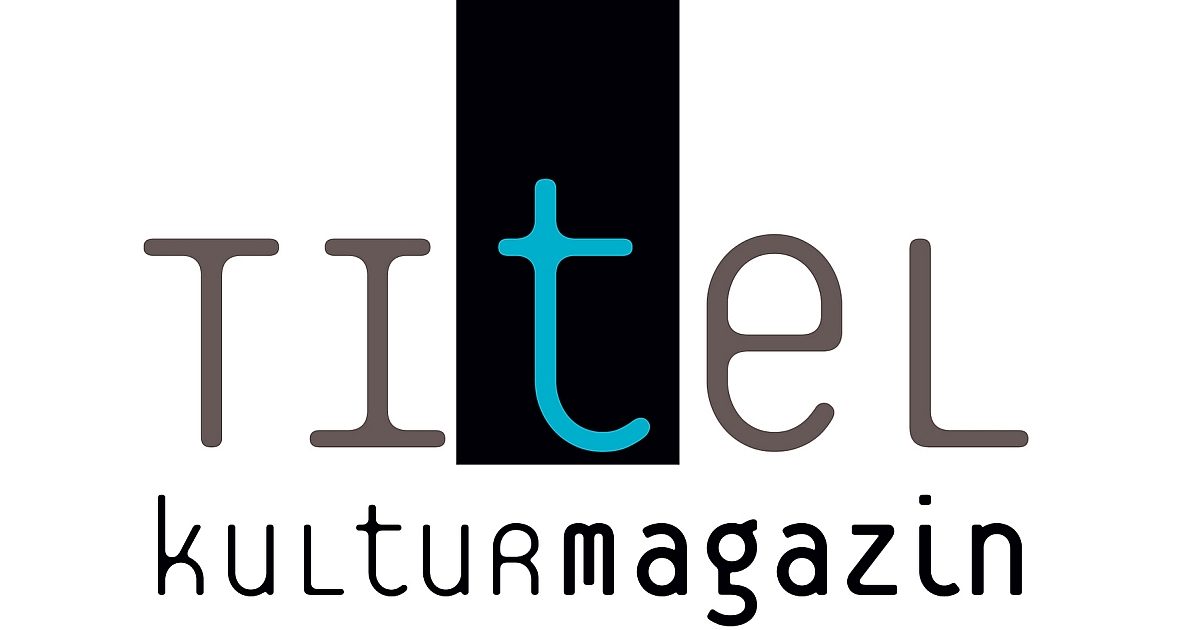
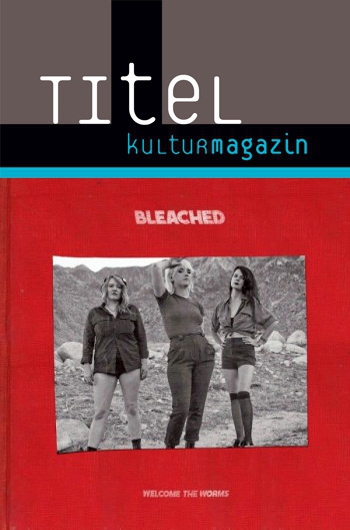
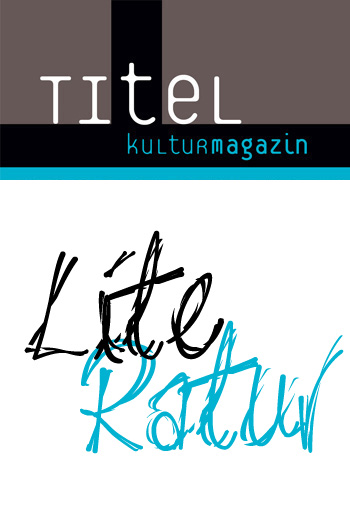
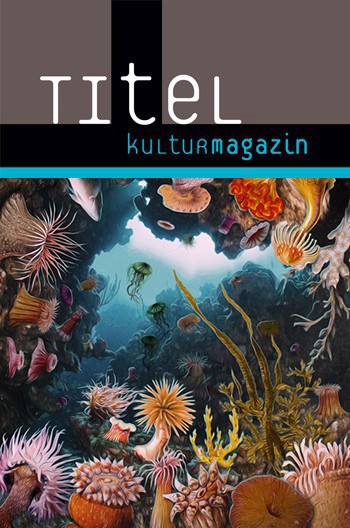
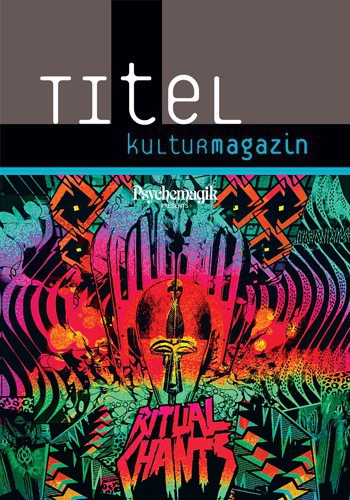
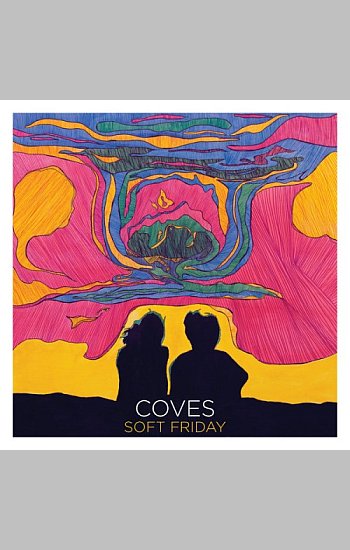
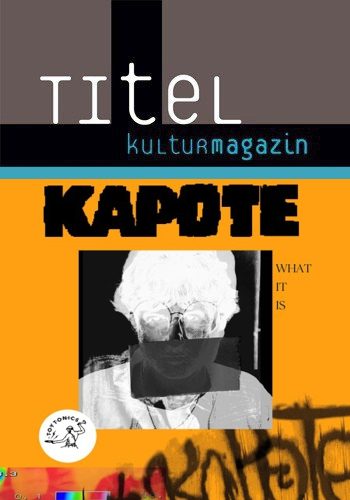

[…] the opening of a recent interview with the artist notes: “The name Masha Qrella may be new to some, but trust me when I tell […]